For most Egyptians, global warming and climate change are seemingly foreign concepts -ones that are confined in occurrence and consequences to faraway lands. While the reality of climate change, its roots and future implications rarely get the attention they deserve, apocalyptic Hollywood movies have often brought to the silver screens the eventual downfall of the developed world’s mighty nations due to their own man-made destruction.
Because they are virtually non-existent concepts in the public consciousness, most Egyptians are unaware of the immense harm that can befall their country as a result of climate change and its potentially devastating impacts on Egypt.
While barely communicated on a national scale, most Egyptians only encounter the topic of climate change in a few paragraphs in a dusty middle-school textbook, briefly explained and soon long forgotten. Needless to say, that needs to change!
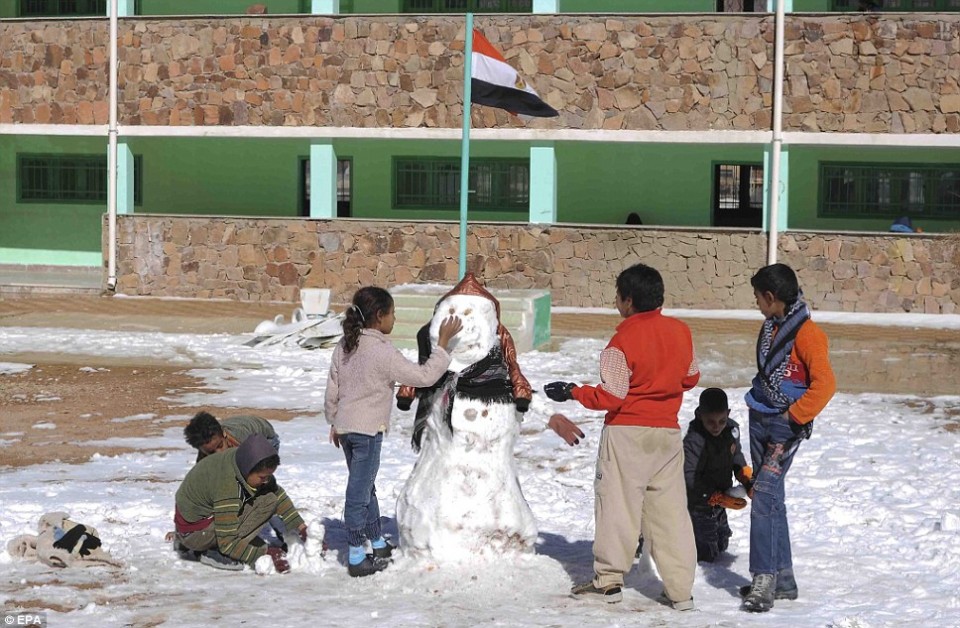
Whenever the topic arises, skeptics everywhere jump at the opportunity to turn to their favorite argument: What has changed? The sky is still blue and the grass is still green! As if decades of well-founded scientific evidence were not enough, the simplest proof of our changing climate in most cases, including Egypt, can be seen by examining recent weather conditions.
Egypt’s climate has already changed. Sandstorms, rainstorms, unusual and untimely temperature fluctuations and earthquakes have noticeably become more frequent over the past few years.
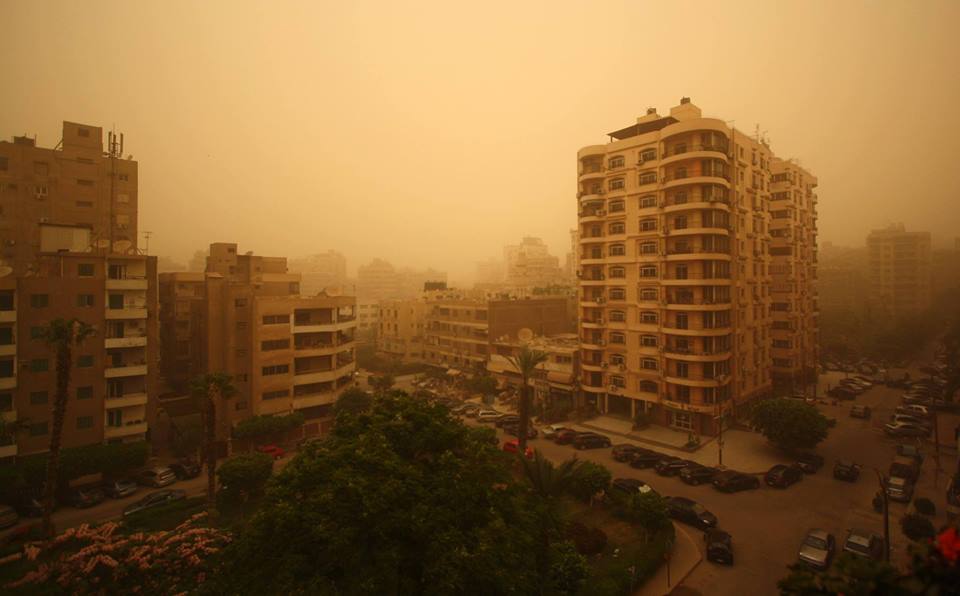
Most recently on June 27, Egyptians struggled to make sense of an earthquake (which followed one in March) accompanied by a sandstorm that uncharacteristically hit during the summer and exactly one month after another massive sandstorm had blanketed Cairo. It is worth noting here that under Egypt’s normal climate conditions, sandstorms occur in the spring and earthquakes do not usually strike twice in four months. Neither does it snow in Cairo, which also occurred this past winter.
While the media tends to frame these as isolated incidents or bizarre coincidences, science says otherwise. Global warming can cause stronger storms, greater earthquakes and extreme weather conditions. An increase in the climate’s temperature means warmer oceans, which speeds up the process of water evaporation giving more power to storms. A warmer atmosphere also allows for excess moisture that in turn causes more rain.
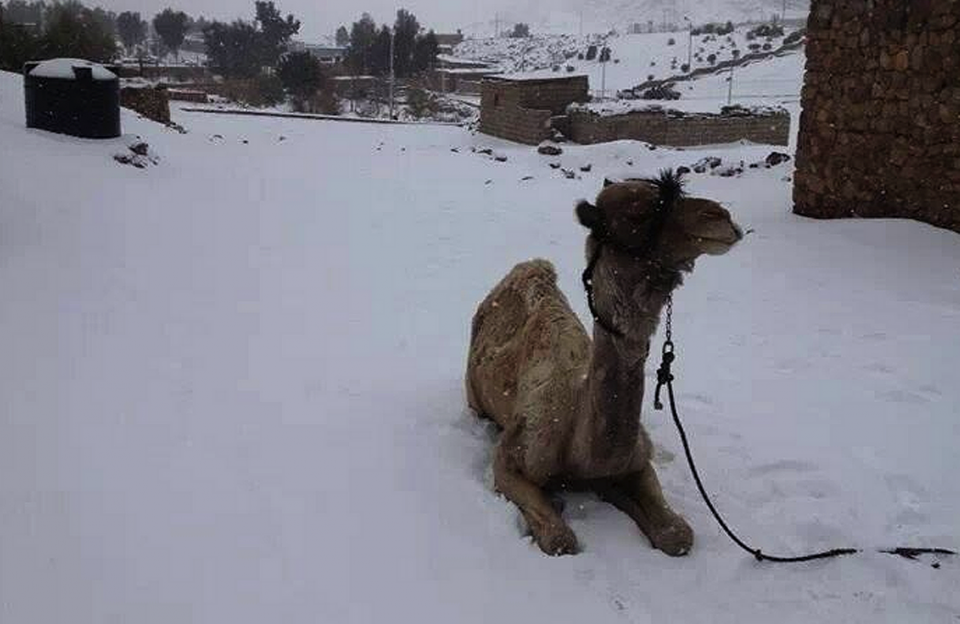
Furthermore, a rising number of scientists have discovered historical proof linking earthquakes to melting ice. A hotter climate causes massive ice sheets to melt, which releases enormous pressure from the Earth’s crust triggering earthquakes, tremors and volcanic activity.
It is no coincidence that the world has seen its deadliest earthquakes and storms in the same time period as its highest concentration of carbon dioxide and subsequent temperature rise, all in the last decade. From 2005’s Hurricane Katrina to the 2015 Nepal Earthquake, our planet is sending a loud and clear outcry.
Perhaps it is about time we accept that global warming is science and not science fiction, that our climate truly is changing and start understanding what this means for Egypt.
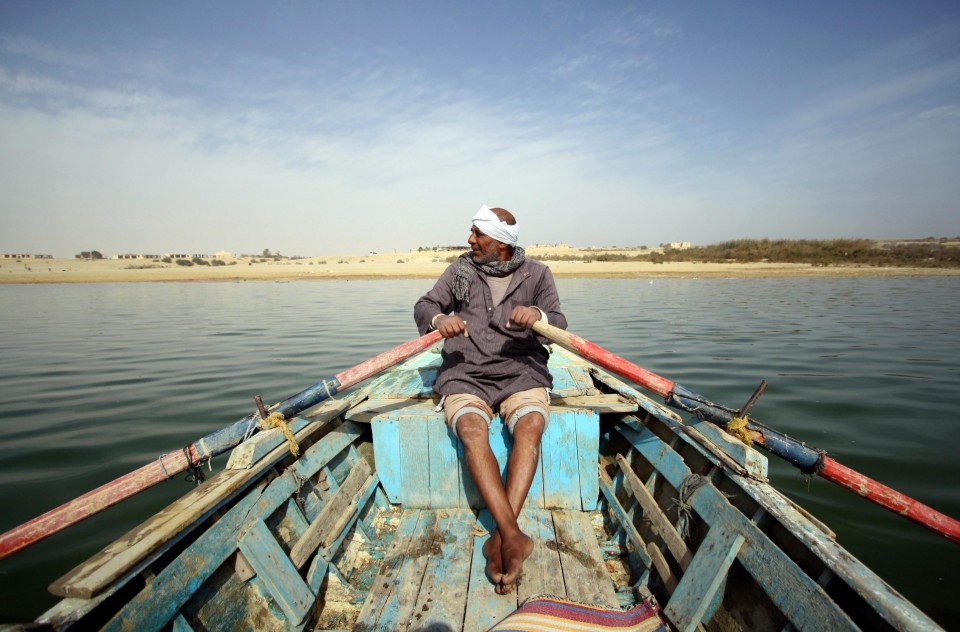
Even though Egypt produces less than one percent of the world’s total emissions of Green House Gases (GHG), it is one of the most vulnerable countries to the impacts and risks of climate change, according to Egypt’s Second National Communication report on Climate Change for the United Nations Framework Convention on Climate Change (UNFCCC). Published in 2010, this followed the initial report that predicted earlier warnings in 1999.
According to the report, this vulnerability stems from Egypt’s unique combination of geography, population distribution, land-use and economic activity. It manifests in potentially massive impacts on Egypt’s sectors of water resources, agricultural resources and food security, economy, tourism, and health. This is due to the fact that Egypt’s lifelines are constrained to five percent of its land area, the Nile Valley and its Delta.
A rise in sea levels, perhaps the most direct effect of global warming, can have potentially devastating effects on Egypt’s income-generating coastal cities and agricultural haven, the densely populated Nile Delta. Alexandria for example, a major economic center where 40 percent of Egypt’s industry and some of the nation’s richest historic and architectural heritages are located, is one of the low-land cities most threatened.
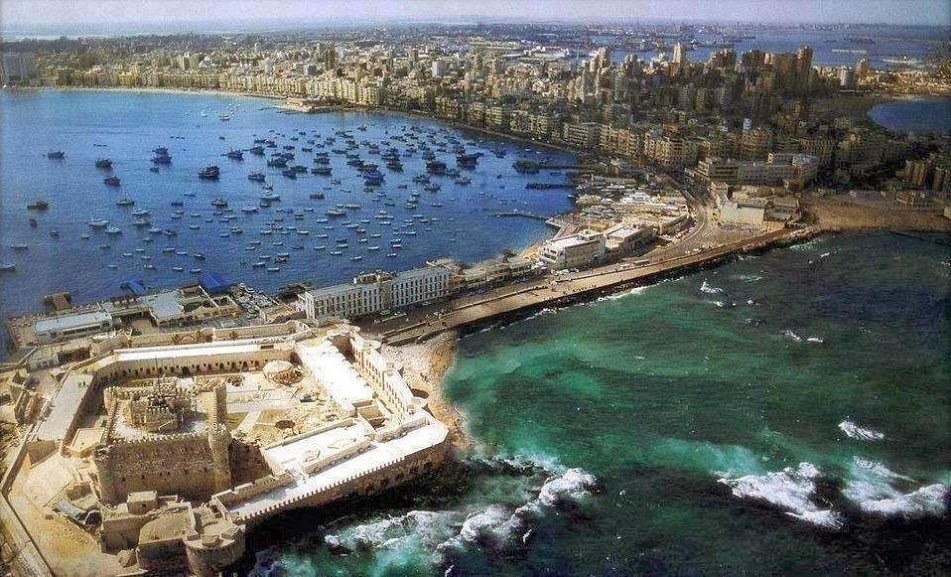
A 2007 World Bank study estimated that just a one-meter sea level rise could displace 10 percent of Egypt’s population, as more than half of the nation’s inhabitants live within 100 kilometers of the Mediterranean coast. The Intergovernmental Panel on Climate Change (IPCC) predicts that the Mediterranean will rise that one meter within this century.
Studies by institutes in Egypt found that in 2008 the Mediterranean had already been rising two centimeters per year for the previous 10 years. If that has continued and does not stop soon it will take about 50 years to reach a one-meter sea level rise. What will Egypt’s population be like then?
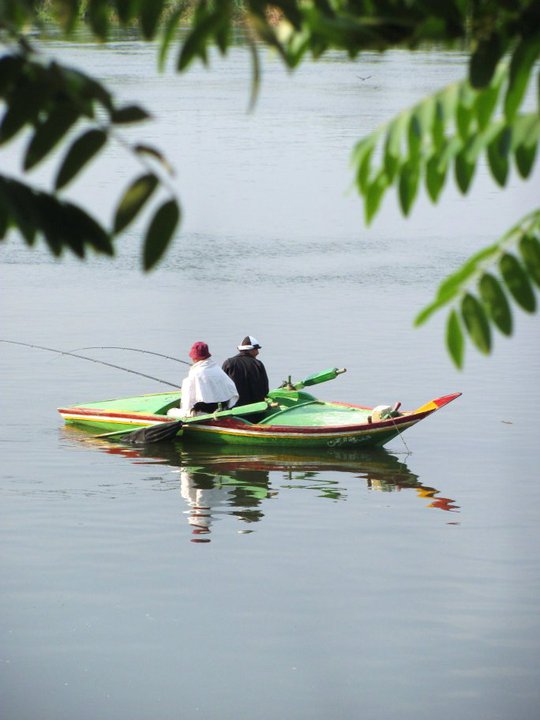
Not only do rising seas threaten the lives of the millions who live in these areas, they pose serious threats for their economy and tourism, as well as agricultural crop production in the Nile Delta. Another highly vulnerable city, for example, is Port Said, an important harbor and the second largest tourist and trade center on the Mediterranean.
Further studies show that climate change will not solely take its toll on the Mediterranean, but it can also affect the Nile. The (UNFCCC) report presented studies that conclude that natural flows in the River Nile Basin as a whole, and in separate sub-basins, are extremely sensitive to change in precipitation and temperature increase caused by climate change.
Some studies predicted negative consequences for this sensitivity and others predicted potentially positive ones, however this much is clear: Climate change can affect Egypt’s most important water resource, and subsequently its food production and security.
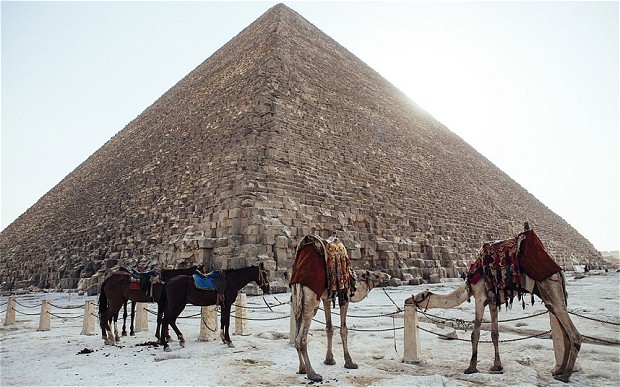
In his long climate change awareness campaign, Noble Prize-winning global warming theorizer Al Gore said, “Ultimately this is really not a political issue so much as a moral issue.” Pointing at a scientific graph depicting future carbon dioxide concentration projections, Gore said: “If we allow that to happen, it is deeply unethical.”
Gore’s remarks offer significant insight into the possible solutions for climate change. A great start would be to begin with the individual. Each and every one of us unknowingly contributes to the problem, but we all have the power to make a change. Our sense of morality should at least compel us to try.
We have to first acknowledge the issue for what it is, but that does not mean to give in to frustration. As Gore once said, between denial and despair many people forget that they can actually do something about the problem.
This change can vary, from making lifestyle choices that reduce individual carbon emissions or making active decisions to stop wasting vital resources such as water, to simply raising awareness. Just starting the conversation and creating a discourse is one positive step forward.
Let’s talk about climate change!



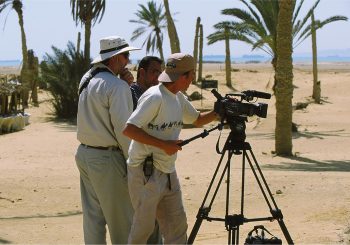


Comments (30)
“Children in Saint Catherine building a snowman at the school yard during a rare snowstorm that blanketed most of the Middle East in December 2014” A camel sitting in the snow?
So that’s Global Warming…..
Sandstorms in Egypt? That’s global warming?
“A hotter climate causes massive ice sheets to melt, which releases enormous pressure from the Earth’s crust triggering earthquakes, tremors and volcanic activity.”
Hotter than when? It was warmer than now in the Medieval Warm Period, yet I don’t think there was an increase in volcanic episodes. The deep-sea sedimentary record shows that up to 50 ‘warm’ and ‘cold’ climatic oscillations have occurred within the last 2.4 Ma.
The things you speak of are computer simulations based on flawed model inputs. Reality shows them to be false.
Changing weather patterns. Hot, warm , cool ,cold, wet, dry. I’m scared. If that sea level ever starts to rise you’d better watch out! Doomsday “scientists” can predict anything50 years out and no one can prove them wrong. That’s why they don’t predict 2 years out.
Ok, we don’t have to talk about what will happen in 50 years. But we don’t even talk about what’s happening now. I doubt anyone believes the smog covering Cairo is healthy. Pollution may cause climate change over time. It is definitely causing health issues now. So still worth talking about even if you don’t believe in the doomsday scenarios.
Trillions of $ wasted fighting CO2, not smog. Fighting pollution is fine, making up false science to combat harmless CO2 makes me mad. Putting people out of a job or out of business and chafing people taxes and fines and passing intrusive laws based on a lie is not OK. There is no climate change.Sea levels have been slowly rising for centuries. We don’t need a Big lie to fight real pollution.
What are you stupid? We don’t spend trillions fighting CO2. And you obviously have zero idea of what the potential impacts of CO2 could be.
Could you even describe the scientific consensus over CO2 impacting climate? Or are you just thoughtless throwing shit around?
Could you even describe the scientific consensus over CO2 impacting climate?
Can you? Perhaps you are a 97 percenter.